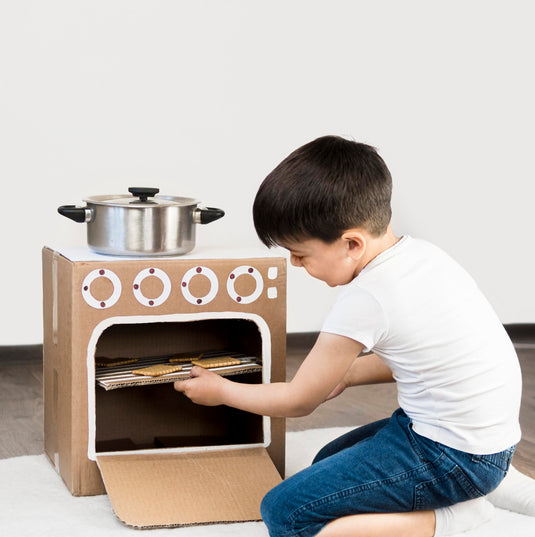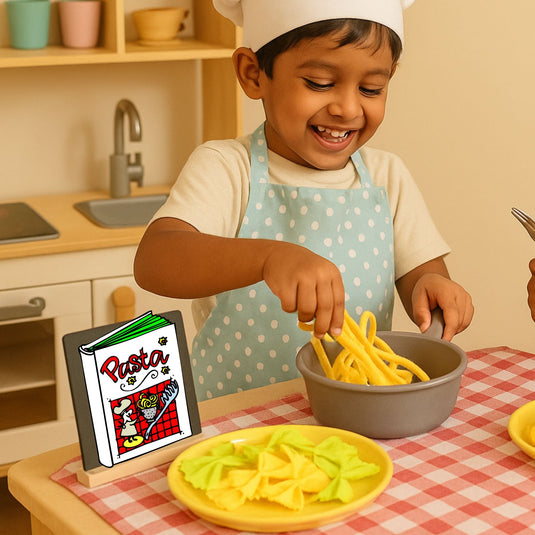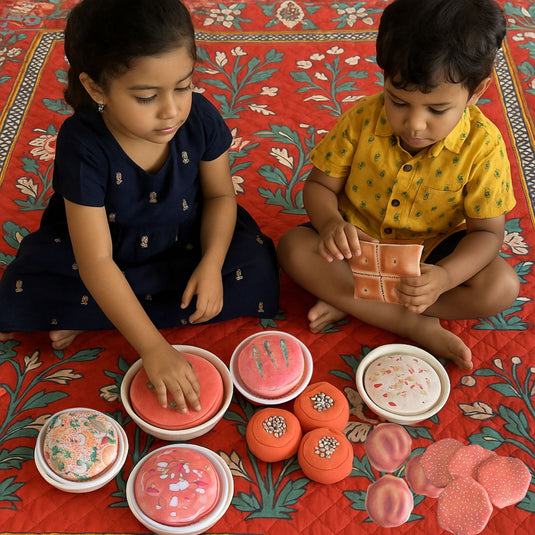Creating a dramatic play area for kids offers numerous benefits that contribute to their overall development. Here are some key advantages:
1. Imagination and Creativity:
- Dramatic play encourages children to use their imaginations and create scenarios, characters, and stories. This fosters creativity and helps them develop a rich and flexible imagination.
2. Social Skills:
- When children engage in dramatic play, they often do so in groups, taking on different roles and interacting with their peers. This helps develop essential social skills such as communication, cooperation, sharing, and taking turns.
3. Language Development:
- Dramatic play involves a lot of conversation and verbal interaction. Children have the opportunity to express themselves, use vocabulary related to the scenario (e.g., grocery shopping, cooking), and practice language skills in a meaningful context.
4. Problem-Solving Skills:
- As children engage in role-playing scenarios, they encounter various situations that require problem-solving. They learn to think critically, make decisions, and navigate social situations, contributing to the development of problem-solving skills.
5. Emotional Development:
- Dramatic play allows children to explore and express a wide range of emotions through their roles and interactions. This helps them understand and manage their own emotions, as well as empathize with others.
6. Fine and Gross Motor Skills:
- Manipulating props, using utensils in a play kitchen, or moving around the dramatic play area all contribute to the development of fine and gross motor skills. These activities help improve coordination, balance, and control.
7. Cognitive Skills:
- Through dramatic play, children engage in symbolic thinking as they pretend to be someone or something else. This form of play supports cognitive development, including abstract thinking, understanding symbols, and representing ideas.
8. Understanding of the World:
- Dramatic play often involves imitating real-world scenarios, such as going to the grocery store or playing in a pretend kitchen. This helps children make sense of their environment and understand the roles and activities they observe in their daily lives.
9. Self-Regulation:
- Engaging in dramatic play requires children to follow certain rules and take on specific roles. This helps in the development of self-regulation as they learn to control their impulses, follow social norms, and adapt to different roles within the play scenario.
10. Confidence and Self-Esteem:
- Successfully taking on different roles and scenarios in dramatic play boosts children's confidence and self-esteem. It provides them with a sense of accomplishment and helps them feel more competent in different situations.
11.Cooperation and Teamwork:
- In group dramatic play, children learn to cooperate with others, negotiate roles, and work together to create a shared imaginative experience. This promotes teamwork and collaboration.
Setting up a dramatic play area creates a rich, stimulating environment that supports holistic child development across various domains. It provides a platform for learning that is both enjoyable and educational.
Benefits of Dramatic Play area set up for kids




